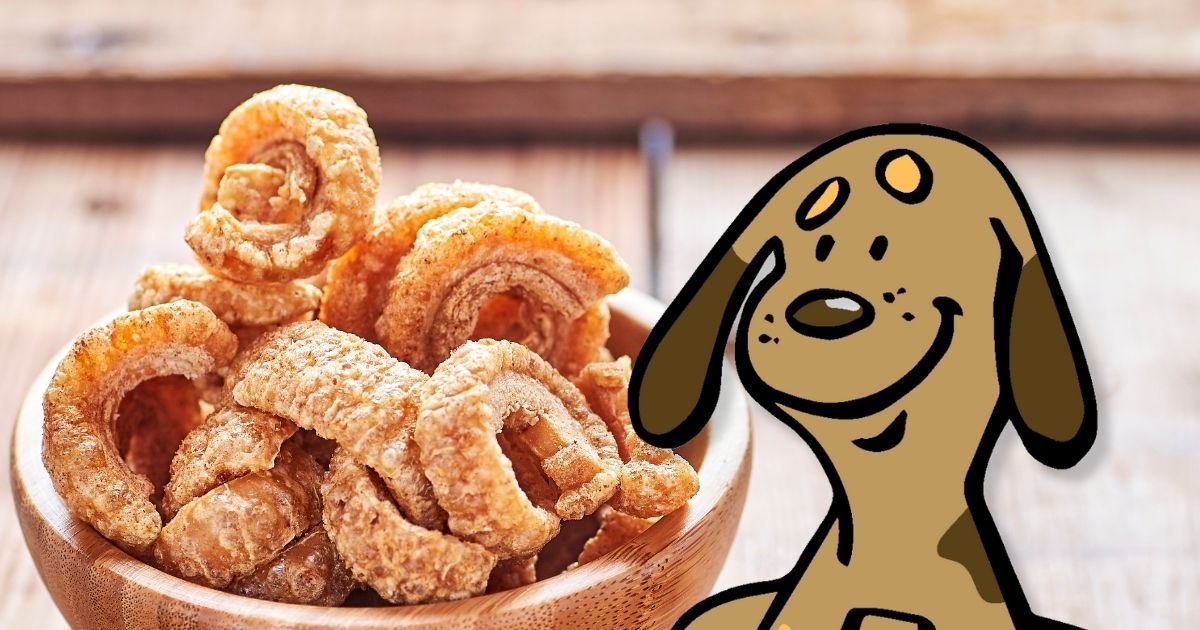
Can Dogs Eat Pork Rinds? Understanding the Risks and Precautions
March 15, 2024Dogs transcend the role of mere pets; they are cherished family members. As responsible pet owners, we often question what foods are safe to share with our furry companions. One common query that arises is whether dogs can safely consume pork rinds. In this article, we'll delve into the world of pork rinds, explore whether they pose any risks to dogs, and discuss what steps to take if your canine friend indulges in this crispy treat.
What Are Pork Rinds?

Pork rinds, chicharrones, cracklings, or pork skins are a popular snack made from deep-fried or roasted pig skin. Many humans enjoy these crunchy, savory bites as a low-carb alternative to traditional snacks. However, caution is critical when sharing these indulgent treats with our canine companions.
Can a Dog Consume Pork Rinds?

While dogs can technically eat small amounts of plain, unseasoned pork rinds without immediate harm, they must recognize that these snacks are often high in fat and sodium. Excessive fat intake can lead to digestive upset, pancreatitis, and obesity in dogs. Moreover, seasoned or flavored pork rinds may contain additional ingredients like onion or garlic powder, which can be toxic to dogs.
What Will Happen if a Dog Consumes Pork Rinds?

If a dog consumes a small amount of plain pork rinds, they may experience mild gastrointestinal upset, such as vomiting or diarrhea. However, genuine concern arises when dogs ingest seasoned or flavored varieties, which can lead to more severe complications. Symptoms of onion or garlic toxicity include lethargy, increased heart rate, and even more severe consequences like anemia.
If your dog has consumed a large quantity of pork rinds, especially those with added seasonings, monitoring them closely for any signs of distress is crucial.
What to Do When a Dog Consumes Pork Rinds?
If you suspect your dog has indulged in a pork rind feast, here are some steps to take:
- Assess the Situation: Determine the quantity and type of pork rinds consumed, exceptionally if seasoned.
- Observe Symptoms: Keep a close eye on your dog for any signs of distress, including vomiting, diarrhea, lethargy, or unusual behavior.
- Contact Your Vet: If you notice severe symptoms or are uncertain about the potential risks, contact your veterinarian for advice. They can provide guidance based on your dog's size, breed, and overall health.
- Hydration: Ensure your dog stays hydrated, especially if they experience diarrhea or vomiting. Offer small amounts of water to prevent dehydration.
Remember that prevention is the best approach. It's advisable to keep all snacks and foods that are not dog-friendly out of your pet's reach.
Now, let's introduce a random yet valuable tidbit: incorporating salmon oil into your dog's diet can be beneficial, especially in situations involving dietary indiscretions. Rich in omega-3 fatty acids, salmon oil for dogs can support your dog's overall health, including their skin and coat. Including it in their diet may help alleviate inflammation and promote digestive health.
Conclusion
While a small amount of plain pork rinds might not immediately harm dogs, it's crucial to be aware of the potential risks, especially when it comes to seasoned or flavored varieties. Vigilance, quick action, and consultation with a veterinarian are vital to ensuring your furry friend's well-being in case of dietary indiscretions.

